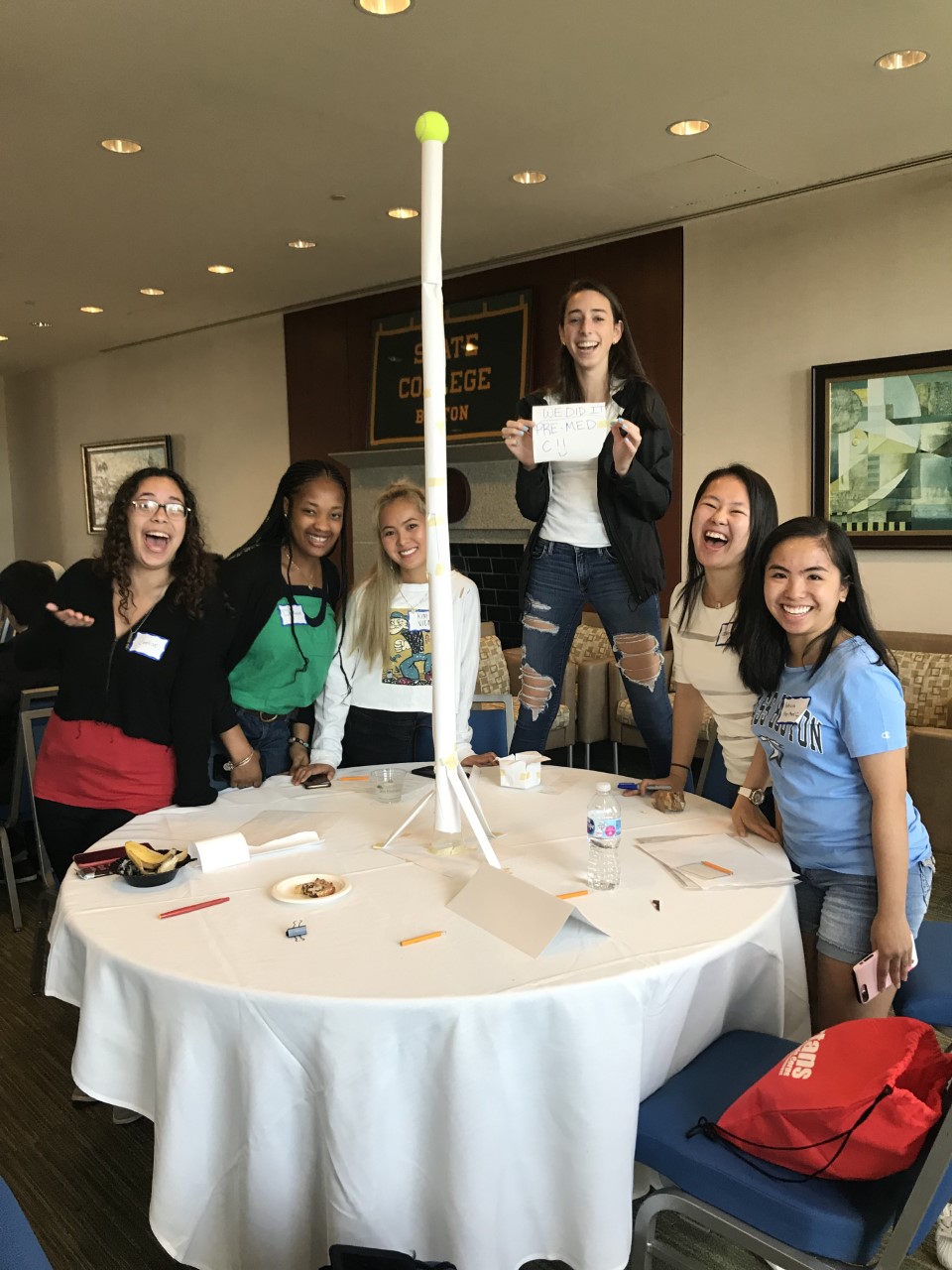- Home
- Science & Mathematics
- Student Success Center
- First Year STEM Communities
First Year Stem Communities
Read about the exciting 2024 FSC Kick-Off event!
Fall 2025 FSC Orientation Intake Form
Be part of a First Year Stem Community (FSC) designed for entering science and mathematics majors! Make friends, meet faculty, and have a better supported and more satisfying learning experience at UMass Boston. Click here to download our brochure! Learn more about FSC's through our video!

What are First Year Stem Communities?
They are small groups of science and mathematics students who:
- Help each other navigate through a large university setting
- Enroll in the same major core courses grouped by academic discipline
- Receive priority enrollment in major courses
- Connect with university resources and faculty for academic support and to find research and career opportunities
- Form study groups to achieve academic excellence and finish their degrees in a shorter time period
We offer FSCs for students in every CSM major!
Spaces are limited and seats are available on a first-come, first-served basis. Students will be invited to participate in a FSC based on their choice of major and math/writing placement results.
Some FSC's include a Freshman Gateway Seminar course which satisfies the University's First Year Seminar requirement. These are typically courses with a catalog number of 187S such as Chem 187S, Biol, 187S, or CS, 187S. Unlike a traditional four-credit first year seminar, the FSC Gateway Seminar is split across a full academic year; fall and spring semesters, with each section providing two credits.
Other FSC's include a one credit Success Transition course taught by professional CSM Student Success Advisors. These are INTR-D 120 & 121 which focus on academic transition skills and an introduction to career exploration opportunities while providing personalized peer mentoring and support. Students who take one of these INTR_D 120 & 121 sections will still need to complete a traditional four-credit First Year Seminar.
All First Year Seminars (both the traditional four-credit, one semester courses, as well FSC Gateway Seminar courses) contain the following curriculum learning outcomes:
- Careful Reading: Students should develop effective reading strategies to demystify “careful reading” at the college level. For example, in class-practice should teach ways to find “main arguments” at the college level.
- Clear Writing: In writing, students should be able to cite evidence appropriately,
- represent and attribute complex ideas accurately, and apply theoretical material to other situations.
- Verbal Reasoning (Critical Thinking): Students, in writing or speaking, should be able to cite evidence appropriately, represent and attribute complex ideas accurately, and apply theoretical material to other situations. They should also begin to assess the credibility of sources.
- Using the Library and Information Technology to Further Learning: Students should be able to locate and evaluate a variety of different kinds of sources in the Healey Library, including on-line sources.
- Collaborative Work: Students work on a team project involving a concrete and interesting project, typically reporting to the class as a whole.
- Speaking/Listening: Students should be able to cite evidence appropriately, represent and attribute complex ideas accurately, and apply theoretical material to other situations.
- Academic Self-Assessment: Students should be able to review their progress based on a selection of assignments during a term.
More specifically, the FSC Gateway courses are organized along a theme of inquiry-based learning for students and faculty. As described in INTR-D 187S/188S;
Each participant has a role in understanding topics that are prevalent in the scientific community along with developing new information that might form the basic science investments of the future. This is a two-semester sequence, two credits each semester. Successful completion of the sequence will fulfill student's First-Year Seminar requirement.
Course content will vary with instructor, but will focus on discussion of topics with broad societal impact, and will have important scientific underpinnings, with a particular focus on science topics. Using this approach, students will become increasingly familiar with and experienced in scientific discourse, the scientific method, and important new scientific findings. This course will maximize students' potential for success in the university and the scientific community.
Desired outcomes will focus on;
- Development of discovery skills.
- Becoming self-driven learners, learning to work in groups and being successful at the university.
If you have any questions about CSM's First Year Success Communities, feel free to email studentsuccess@umb.edu